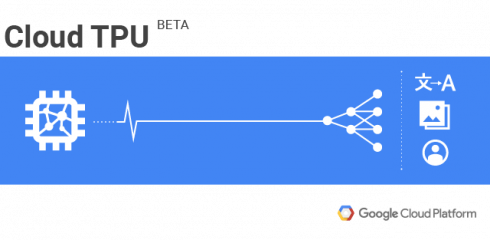
Google announced that Cloud TPUs and GPU support for Google Kubernetes Engine are now in beta as part of a series of updates for the Google Cloud Platform.
The Google-designed Cloud TPUs, built on four custom ASICs and with “up to 180 teraflops of floating-point performance and 64 GB of high-bandwidth memory onto a single board,” were built to speed up TensorFlow machine learning workflows. According to the company, some model training processes will be sped up from a weeks-long to overnight endeavor with the use of the Cloud TPUs.
The custom ASICs on board can be programmed with high-level TensorFlow APIs, and Google has released a set of reference high-performance Cloud TPU model implementations “to help you get started right away.” These include ResNet-50 and others for image classification, Transformer for machine translation and language modeling and RetinaNet for object Detection.
“Over time, we’ll open-source additional model implementations,” John Barrus, product manager for Cloud TPUs at Google Cloud and Zak Stone, product manager for TensorFlow and Cloud TPUs at the Google Brain Team wrote in the blog post. “Adventurous ML experts may be able to optimize other TensorFlow models for Cloud TPUs on their own using the documentation and tools we provide.”
GPU support for Google Kubernetes Engine has left alpha with NVIDIA Tesla P100 and K80 GPUs available for use in GCP Kubernetes clusters, with NVIDIA V100s being implemented soon.
“Using GPUs in Kubernetes Engine can turbocharge compute-intensive applications like machine learning (ML), image processing and financial modeling,” Yoshi Tamura, product manager at Google Kubernetes Engine wrote in the announcement. “By packaging your CUDA workloads into containers, you can benefit from the massive processing power of Kubernetes Engine’s GPUs whenever you need it, without having to manage hardware or even VMs.”
Both offerings are available today on the Google Cloud Platform.







